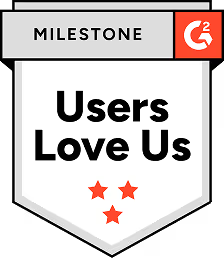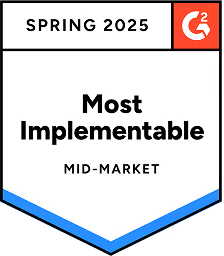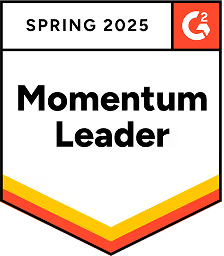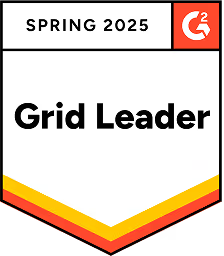AI Agents vs. Agent Washing: What to Know

TL;DR
AI presents a brave new world for sellers who want to transform their prospecting game, but it’s important to realize that not all AI solutions are created equal. The rise of "agent washing" - the practice of mislabeling simple automation tools as sophisticated AI agents - has created a significant amount of confusion in the market lately, so we wanted to take a moment to help clear things up.
Whether you’ve already started shopping around for AI agent solutions or you’re just getting started, this article is meant to give you a clearer sense of what true AI capabilities and solutions look like – versus ones that merely claim that title. By understanding the differences, you’ll be able to find the right solution for your team’s needs – and save a whole lot of time, money, and headaches in the process.
Key takeaways from the article:
- Understanding AI sales agents: True AI sales agents are sophisticated software entities that can understand complex contexts, make decisions, and perform tasks autonomously on behalf of humans.
- Spotting "agent washing": "Agent washing" is when companies claim to offer AI agents but are really just providing basic automation tools with a fancy label. Real AI solutions offer adaptability and intelligence beyond rule-based systems.
- Intelligent decision-making: Genuine AI agents can analyze complex contexts and adapt outreach strategies based on real-time data. In contrast, agent-washed tech relies on rigid, pre-programmed sequences regardless of a lead’s circumstances, behaviors, or needs.
- Comprehensive performance analysis: True AI provides in-depth insights on lead behavior and engagement patterns. Agent-washed tech typically offers limited analysis, often relying on basic metrics like email opens or link clicks.
- Evaluating your options: When you’re evaluating AI solutions, half the battle is just knowing the right questions to ask. In this article, we share examples of key questions to ask vendors that will help you get a better sense of whether their products are the “real deal” or something else entirely.
Picture it: You've just invested in a shiny new artificial intelligence (AI) solution for your sales team called an "AI agent." You've spent months evaluating your options, kicking the tires on tens of vendors, and now — after all that work — you're finally going to get to try it out. You've been promised that this tech would skyrocket your prospecting efforts, so you waste no time getting the team up and running on it.
Fast forward three months and your results are... underwhelming.
Sound familiar? You might be a victim of "agent washing" - the latest pitfall in the world of sales technology.
This scenario is becoming all too common: companies are rushing to slap the "AI agent" label on what amounts to little more than dressed-up automation. The danger? It isn’t just about wasted budget: it's about missed opportunities and falling behind competitors who are leveraging true AI capabilities.
In this article, we'll dive deep into the world of AI agents in sales. We’ll teach you how to distinguish between genuine AI that can transform your sales process and clever marketing that leaves you with glorified auto-responders.
It's time to arm yourself with the knowledge to make informed decisions in this AI-driven sales landscape.
What exactly are AI sales agents?
Before we jump into the nitty-gritty, let's clarify what we mean by "AI sales agents."
These aren't your run-of-the-mill chatbots or simple automation tools. True AI sales agents are sophisticated software entities powered by advanced AI. They can understand complex contexts, make decisions, and perform tasks autonomously on behalf of humans.
In the sales world, AI agents act as virtual team members. They handle time-consuming tasks like research, message generation, and outreach execution. This frees up human sales reps to focus on what they do best: building relationships, using their intuition, and closing deals.
{{cta-1}}
What’s "agent washing"?
Now, here's where things get tricky. As AI agents gain popularity, some companies are jumping on the bandwagon without actually delivering the goods. This practice is called "agent washing": a term coined by Gartner to describe companies that claim to offer AI agents but are really just providing simple automation tools with a fancy new label.
“Agent-washed” solutions often rely on basic rule-based systems or rudimentary algorithms. They might dress up existing sales automation tools with cool “AI”-sounding terminology, but they lack the true intelligence and adaptability of genuine AI agents.
Same goes for when companies try to pass off their AI sales assistant (i.e., “copilot”) products as AI agents. This is a more subtle and insidious form of “agent washing” because AI sales assistants are technically “true” AI tools (i.e., they're built with AI), but the key difference here is that they're just that: tools. AI sales assistants can support or enhance the work of human reps, but they can’t go much beyond that. They certainly aren’t equipped to handle the more advanced and complex functions that AI agents can, such as making decisions or performing tasks 100% autonomously. (We see this kind of “agent washing” happening more and more in the industry, so it’s definitely one to keep an eye out for.)
AI sales agents vs. “agent-washed” tech: How to separate fact and fiction
So, how can you tell the difference? Let's compare the approaches across six core aspects of the sales prospecting process:
- Lead identification
- Lead scoring & prioritization
- Next-best action determination
- Prompt selection & message generation
- Engagement & optimization
- Warm lead identification & handoff
1. Lead identification
Below, we'll define and clarify how lead identification works with "agent-washed" tech vs. a real AI sales agent:
“Agent-washed” technology
- Imagine you're using a fancy fishing net, but it's full of holes. This is what lead identification looks like with “agent-washed” solutions.
- They rely on manual list filtering and pulling in leads based on rigid, predefined criteria that don’t capture the nuanced understanding of what a good lead looks like.
- The result? A net filled with many irrelevant catches that your sales team has to sort through.
vs.
Real AI sales agents
- Now picture an intelligent fishing drone that learns from every catch. This is what lead identification looks like with real AI sales agents.
- True AI agents use machine learning to develop and refine ideal customer profiles (ICPs).
- They also can analyze your historical data, identify patterns, and use AI techniques like clustering and similarity analysis to find lookalike audiences.
- It's like having a smart fishing companion that gets better at spotting the right fish with every outing.
Questions to ask when evaluating AI agent solutions
When you’re shopping around for AI-powered prospecting solutions to help you with lead identification, here are four crucial questions to ask that will help you spot the real deal (as well as the fakes):
- How does your agent adapt its lead identification over time based on what it’s learning from interactions?
- Does your agent rely on list filters to identify ICP leads to engage, or is it using machine learning? Could you describe what that process looks like?
- How does your agent incorporate new data points that correlate with successful conversions?
- Does your agent use AI to find lookalike audiences beyond basic demographic matching? Could you describe what that process looks like?
2. Lead scoring & prioritization
Below, we'll define and clarify how lead scoring and prioritization work with "agent-washed" tech vs. a real AI sales agent:
“Agent-washed” technology
- This is like having a prioritized to-do list, but with none of the tools you need to act on it.
- “Agent-washed” solutions might score leads using AI, but they fail to put this information into action effectively.
- For example, they might tell you to “call this lead in three months” without any real strategy for autonomously keeping that lead warm or resurfacing the lead for your rep when they're ready to buy.
vs.
Real AI sales agents
- Imagine having a personal assistant who not only organizes and prioritizes your to-do list, but also goes ahead and acts on it right now for the best results.
- True AI sales agents use machine learning to score and stack-rank leads based on fit and readiness to convert.
- They also can analyze intent data, prioritize leads showing active interest, and continuously adapt their engagement based on new information and market trends.
Questions to ask when evaluating AI agent solutions
When you’re shopping around for AI-powered prospecting solutions to help you with lead scoring and prioritization, here are four crucial questions to ask that will help you spot the real deal (as well as the fakes):
- How does your AI agent incorporate real-time behavioral and intent data into lead prioritization?
- Can you describe how your agent adapts its lead and task prioritization based on what’s working (or not)?
- How does your agent automatically reprioritize leads based on changing market conditions or lead behaviors?
- What actions does your agent take autonomously based on lead scores and prioritization?
{{cta-1}}
3. Next-best action determination
Below, we'll define and clarify how next-best action determination works with "agent-washed" tech vs. a real AI sales agent:
“Agent-washed” technology
- Picture a GPS that gives you directions but ignores traffic, road closures, and your preference for scenic routes. That’s what you get with “agent-washed” tech.
- “Agent-washed” solutions often follow rigid, pre-programmed sequences of actions, regardless of the lead's individual circumstances or responses.
vs.
Real AI sales agents
- Now imagine a GPS that not only considers current conditions, but also factors in information from previous trips you’ve taken in order to determine the best routes to take at various times throughout the day. That’s the power of a real AI sales agent.
- True AI agents use reinforcement learning to determine the optimal next-best channel, message, and timing for each touch, making better decisions with every interaction.
- They can also analyze each lead's unique context, learn from every engagement, and continuously refine their approach.
Questions to ask when evaluating AI agent solutions
When you’re shopping around for AI-powered prospecting solutions to help you with next-best action determination, here are four crucial questions to ask that will help you spot the real deal (as well as the fakes):
- How does your AI sales agent determine the optimal next-best action for each individual lead?
- Can you explain how your agent learns and improves its actions over time?
- How does your agent adapt its messaging based on the specific context of each lead?
- What AI techniques (e.g., reinforcement learning, constrained optimization, etc.) does your agent use to determine the next-best action?
4. Prompt selection & message generation
Below, we'll define and clarify how prompt selection and message generation work with "agent-washed" tech vs. a real AI sales agent:
“Agent-washed” technology
- “Agent-washed” solutions often rely on templated messages with variable tags to create “personalization.”
- The result: awkward, impersonal messages that are more likely to land in spam folders than in interested inboxes.
- If you’re thinking that this sounds a lot like playing “Mad Libs” with sales messaging, you’d be right.
vs.
Real AI sales agents
- True AI agents maintain a library of prompts tailored to various scenarios and buyer personas.
- Then, they use large language models (e.g., OpenAI’s GPT) to generate highly personalized content that feels natural and relevant to each recipient.
- In this context, AI sales agents are like having skilled ghostwriters on staff who not only know your brand’s voice inside and out, but also are able to speak fluently to each of your audience segments – skillfully adjusting voice, tone, and syntax to match their unique needs and pain points.
Questions to ask when evaluating AI agent solutions
When you’re shopping around for AI-powered prospecting solutions to help you with prompt selection and message generation, here are four crucial questions to ask that will help you spot the real deal (as well as the fakes):
- How does your AI agent generate truly personalized messages beyond simple variable insertion?
- Can you explain how your agent ensures message coherence and narrative flow in its generated content?
- How does your agent adapt its messaging based on previous interactions with a lead?
- What measures does your agent have in place to protect client data and sensitive commercial information when using language models for message generation?
{{cta-1}}
5. Engagement & optimization
Below, we'll define and clarify how engagement and optimization work with "agent-washed" tech vs. a real AI sales agent:
“Agent-washed” technology
- Imagine a teacher who gives the same lesson, the same way, year after year, regardless of how well students understand it.
- “Agent-washed” solutions typically follow a linear, one-size-fits-all engagement process that doesn't improve over time.
vs.
Real AI sales agents
- Now picture a teacher who dynamically adapts their teaching style based on each student's progress and feedback.
- True AI agents use reinforcement learning to continuously refine their approach.
- Rather than using static pre-scheduled sequences, AI sales agents engage your leads dynamically based on signals of readiness; this helps ensure that they never “spam” your prospects with unwanted messages when they aren’t ready to buy.
Questions to ask when evaluating AI agent solutions
When you’re shopping around for AI-powered prospecting solutions to help you with engagement and optimization, here are four crucial questions to ask that will help you spot the real deal (as well as the fakes):
- Does your AI agent use traditional sequences on a predefined cadence, or is it determining the next touch and its timing based on signals from the lead?
- Can you describe how your agent determines the best lead to create a call task for at any given time?
- How does your agent balance autonomous engagement with human touchpoints?
- What metrics does your agent use to measure and improve its performance over time?
6. Warm lead identification & handoff
Below, we'll define and clarify how warm lead identification and handoff work with "agent-washed" tech vs. a real AI sales agent:
“Agent-washed” technology
- “Agent-washed” solutions often rely on very few data points for triggers — like basic email opens or link clicks — to identify warm leads.
- Then, they provide very basic and limited context for sales rep follow-up.
- Think of it like playing a game of “hot and cold,” but you’re wearing a blindfold that blocks 90% of your field of vision.
vs.
Real AI sales agents
- Imagine having a genius assistant who can synthesize billions of data points and tell you exactly when a lead is most likely to be ready to talk and what they want to discuss. That’s the kind of experience a real AI sales agent can — and should — deliver.
- Specifically, true AI agents can analyze a wide range of intent and engagement signals for accurate warm lead identification.
- When they detect interest or a positive response, they immediately notify sales reps and provide AI-generated, personalized call guides to guide their follow-up efforts.
Questions to ask when evaluating AI agent solutions
When you’re shopping around for AI-powered prospecting solutions to help you with warm lead identification and handoff, here are four crucial questions to ask that will help you spot the real deal (as well as the fakes):
- How does your AI agent identify warm leads beyond basic engagement metrics like email opens or link clicks?
- Can you explain how your agent generates personalized context for sales reps when handing off warm leads?
- How does your agent ensure timely follow-up on warm leads without manual intervention?
- What kind of insights does your agent provide to sales reps for each warm lead it hands off?
Final thoughts
As we navigate this brave new world of AI in sales, it's crucial to look beyond the buzzwords and examine the underlying technology. Real AI sales agents offer a transformative approach to sales prospecting, leveraging advanced techniques to drive more effective, personalized, and adaptive processes.
By embracing genuine AI agents, businesses can move beyond the limitations of traditional automation and "agent-washed" solutions. They can achieve unprecedented levels of effectiveness in their sales prospecting efforts, allowing their human sales teams to focus on what they do best: building relationships and closing deals.
So, as you evaluate sales prospecting solutions, don't be dazzled by flashy AI terminology. Look for solutions that demonstrate real intelligence, adaptability, and learning capabilities. In the era of AI agents, the future of sales prospecting is smart, personalized, and genuinely helpful - both for your sales team and your potential customers.
Want to learn more about how real AI sales agents work?
Check out Auto-Pilot: our AI Sales Agent "prospecting in a box" solution.
Ready to see what a real AI sales agent can do?
Book a demo to see our Auto-Pilot Agents in action!
FAQs
Read more posts
View all BlogsNeed more help?
If you still have questions, make sure to check out our Help Center: there, you'll find all the tips & advice you'll need to get your team up & running with Regie.ai.









